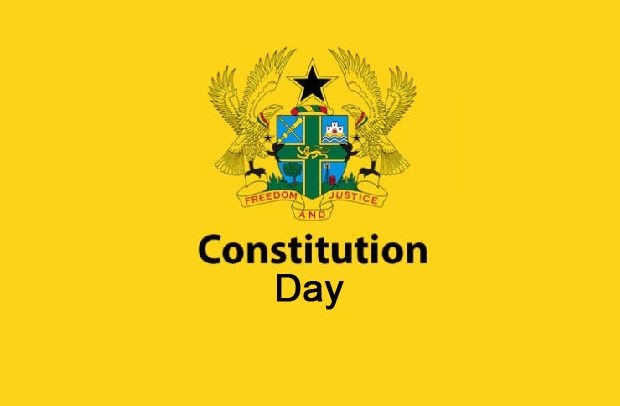The Constitution Day holiday is hardly understood by many Ghanaians yet it remains one of the important day-offs for us.
For the many ignorant the holiday is but one of the days set aside to rest and think about ourselves.
The 1992 Constitution which came into being in 1993 marks a critical period in our political history carved from our experiences of previous times.
As a governance document, it defines the nature of our government, our liberties and how to prosecute our development in a state of freedom and bereft of arbitrariness on the part of officialdom.
Being not the first governance document in the country, its existence suggests previous failed ventures into the complex world of democracy.
Therefore, it is a day on which such state agencies such as the National Commission on Civic Education (NCCE), the Information Services Department (ISD), the state broadcaster should be engaged in educating the citizenry, especially the many who do not understand what the day-off means, on the importance of the Constitution.
As a document which spells out how a President is elected and the laws underpinning elections, a day set out to celebrate it is welcome. Without efforts to educate Ghanaians about constant reference to it and to know where to go when their freedoms are trampled upon, we could be under-utilising the document.
For us, therefore, on a day such as today we should reflect upon our journey to the use of the current constitution and to determine where shortcomings exist. This way, we can call for the review of the relevant portions with a view to making governance serve our positive interest.
As we especially enter a new decade, our country needs to open a new chapter in our application of the tenets of the Constitution.
As a supreme law of the land, we do not appear to appreciate the level to which we can use it to champion the cause and quality of governance.
For us, therefore, there is a lot we can do to bring the contents and comprehension of the Constitution on the doorstep of the citizenry so that the dictum ‘nobody is above the law’ holds sway here in Ghana.
We have observed with regret the situation where the application of the law on politicians who breach the law or segments of the Constitution cry foul when they are dragged before the law.
Until this and other tendencies are expunged from our political practice, critical segments of the Constitution would remain cosmetic with no positive impact on us.
Although there is a lot to do with the Constitution, testing the contents in courts among others, it is exhilarating that we have it to serve as our local Magna Carta.


